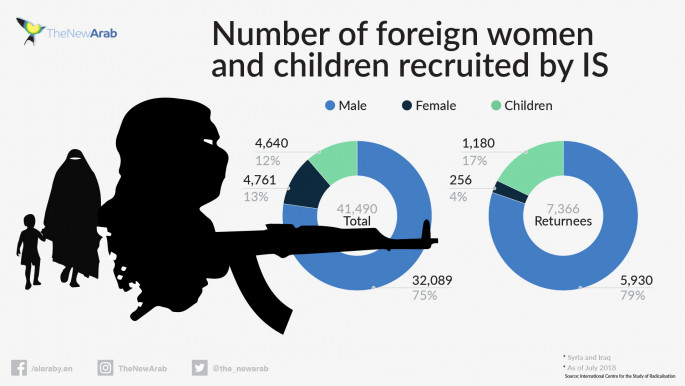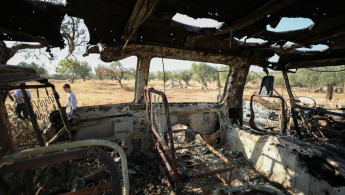Turkey, Syrian Kurds rush to claim credit in US Baghdadi death operation
"Prior to the US Operation in Idlib Province of Syria last night, information exchange and coordination between the military authorities of both countries took place," the Turkish defence ministry said in a tweet.
It did not give details.
Syria's top Kurdish commander on Sunday also hailed the "historic operation" and claimed cooperation between Washington and the Kurdish-led Syrian Democratic Forces helped facilitate the military action.
Mazloum Abdi, head of the SDF - the US's main local ally in years of battles against the Islamic State group in Syria - said the operation was the result of "joint intelligence work".
Washington has allied with both Turkey and the Kurds in Syria, however Ankara considers the Kurdish fighters to be terrorists and has in recent weeks led a cross-border operation to drive them away from the Turkey-Syria border.
'Suicide'
The elusive chief of IS was believed to be dead after a US military raid in the Idlib region, US media reported earlier on Sunday.
Read more: The Iraq Report: IS leader Baghdadi returns as Iraq seeks regional role
The helicopters targeted a home and a car outside the village of Barisha, the UK-based Syrian Observatory for Human Rights said, in the operation which killed nine people.
US President Donald Trump is expected to make a "major statement" on Sunday at 9:00 am (1300 GMT), the White House said.
Some US media reports quoted government sources saying Baghdadi may have killed himself with a suicide vest as US special operations forces descended.
Self-styled 'caliph'
Baghdadi emerged as the leader of al-Qaeda in Iraq, one of the groups that later became Islamic State of Iraq and the Levant (ISIS) in 2010 and then Islamic State group in 2014, and rose to prominence during the failed merger with al-Qaeda-linked Nusra Front in Syria (now Jabhet Fateh al-Sham).
He did not swear allegiance to the leader of the al-Qaeda franchise, Ayman al-Zawahiri, who had urged IS to focus on Iraq and leave Syria to al-Nusra.
Baghdadi and his fighters split with al-Qaeda and pursued an ultra-violent form of extremism that included bringing back slavery, engaging in genocide on non-Muslim minorities and Shia Muslims, and applying an extreme version of Islamic capital punishments, involving live immolation and mass beheading.
The group and lone wolves inspired by it have claimed numerous terror attacks from the US to the Philippines, via Europe and the Middle East.
In 2014, following his group's rapid capture of Mosul and vast swathes of western Iraq, he declared himself from the pulpit of al-Nouri Mosque in the Old City of Mosul the new caliph, leader of the entire Muslim nation, a title abolished in 1924 with the fall of the Ottoman Empire.
The declaration was touted by the militants as a way to increase foreign recruitment and migration to the so-called Islamic State. 
Follow us on Twitter and Instagram to stay connected





 Follow the Middle East's top stories in English at The New Arab on Google News
Follow the Middle East's top stories in English at The New Arab on Google News


![22 Arab countries at COP29 have rejected the targeting of fossil fuels [Getty]](/sites/default/files/styles/image_330x185/public/2024-11/GettyImages-2184289638.jpg?h=199d8c1f&itok=ptHl5bec)